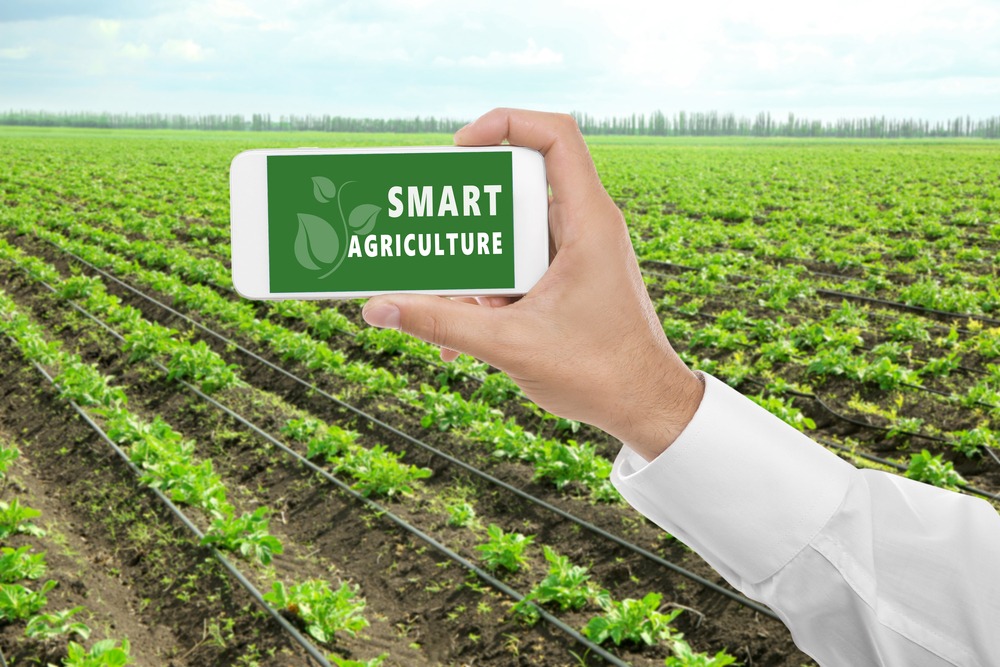African scientists are about to get unprecedented access to enormous amounts of satellite data. This is thanks to a deal signed by the African Union with the European Commission’s Copernicus programme, which describes itself as the world’s third largest data provider.
Data, or better yet, the access to good reliable data, is becoming an increasingly important tool for science. It can help guide and support decisions in agriculture. These include the way food is produced, how it moves along after, and the way it’s stored to avoid food wastage and losses.
In North America, Australia and Europe, huge batches of data are being used to assess everything from the health of farmers’ soil to how shifting weather patterns might affect crops.
The data generated by Copernicus’s satellites includes digital imagery of vegetation, soil and water cover, sea and land surface temperature, and weather patterns. All of this information can help African countries tremendously. With the right data and careful analysis, the continent can address its declining soil health, as well as the threats of climate change and invasive insect or pests such as the fall armyworm.
But it’s not just scientists who stand to benefit from the AU’s deal with the European Commission. It will be important to use Copernicus’s copious data to properly advise smallholder farmers and to help guide pest monitoring efforts across the continent.
Equipping farmers with knowledge
There are about 500 million smallholder farmers across Africa who produce around 80% of the continent’s food. This group could benefit enormously from reliable data.
Smallholder farmers depend on rain fed agriculture, so they’re especially vulnerable to Africa’s changing climate. They’re not financially able to access climate-smart innovations such as drip irrigation. This is why it’s so crucial for them to get knowledge in advance of crop planting season. With data, they can learn early about what rainfall patterns are predicted and whether, for instance, they should plant drought tolerant crops like sorghum and millet or take advantage of heavy rains and plant vegetables.
This sort of work is already happening through the efforts of the Consultative Group for International Agricultural Research, which has built a platform for the use of big data in agriculture. It brings together data enthusiasts and experts who use digital technology to source, analyse and translate big data into timely, practical and context specific information to guide farmers so that they make the best decisions.
Having access to Copernicus data will undoubtedly benefit this platform since it offers additional new data sources. And the Copernicus deal may also inspire the formation of other communities of practice and the birth of other platforms that can continue to translate this data and help guide farmers across Africa.
See Also: The Need for Vertical Farming in Africa
Tackling pests
Africa could also use data from Copernicus to strengthen existing pest monitoring efforts. The Centre for Agriculture and Bioscience International estimates that about 50% of the continent’s crops are lost to pest and diseases each year. Climate change is making the situation worse and is expected to lead to more invasive insects.
Data can be mined to help build images of potential insect pests; these images could then be used to build artificial intelligence and create geographically relevant alerts. Sharing this information with farmers and other stakeholders such as African governments and NGOs that are on the ground working with smallholder farmers allows them to prepare for the arrival of particular pests. This is a way to avoid massive crop failures, which contributes to securing food systems.
This sort of work has been done effectively in the US. Satellite data has aided in monitoring and surveilling the migration patterns of the crop eating corn earworm, a pest that costs farmers an estimated USD$200 million a year. Satellite data has also been used to understand how pests continue to spread.
Learning from each other
All of the big data that’s now available to Africa holds enormous value and promise. But it will be crucial for the continent to keep up with advances in this emerging field: African governments, private foundations, universities, and NGOs all need to get involved.
These groups can learn from each other about best practices and chart new ideas to help accelerate the use of big data.
Training and capacity building will also be critical to ensure that Africa has a rich pool of data scientists and analysts.
This article was first published on The Conversation
More Tech Stories:
- Moroccan Start-up, ATLAN Space, is Developing Smart Drones that will Track Illegal Fishing in African Waters
- A Messaging App That Works Without Mobile Data Launched in South Africa
- Ghana’s e-Commerce Platform, Tonaton.com is Planning to Launch Drone Deliveries
- Telkom Kenya Launches Its New Data Centre in Nairobi
- Equitel Spins Off Fintech Subsidiary Finserve to Disrupt Digital Financial Services in East Africa
